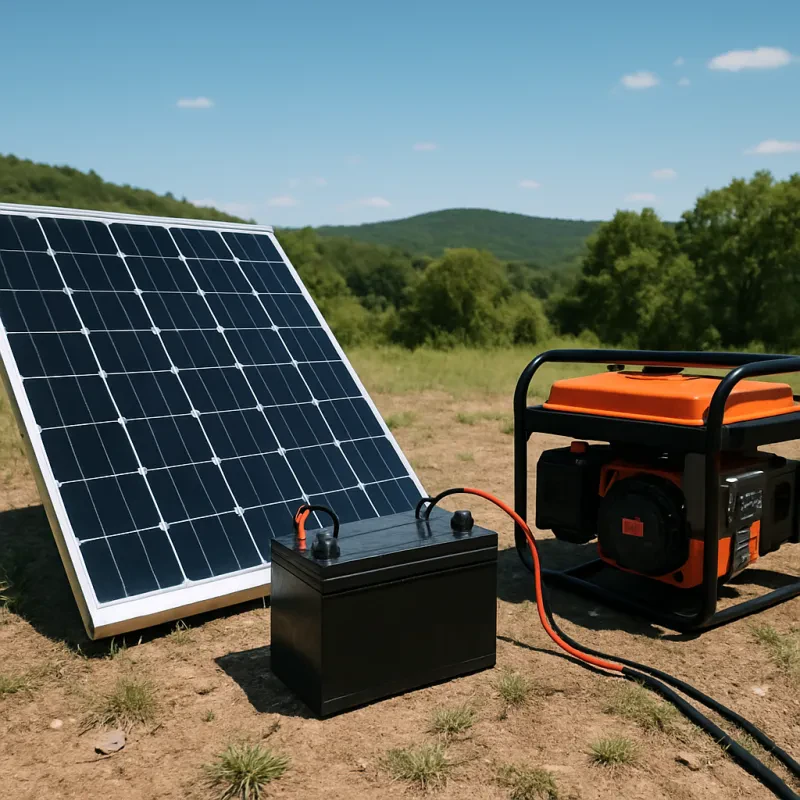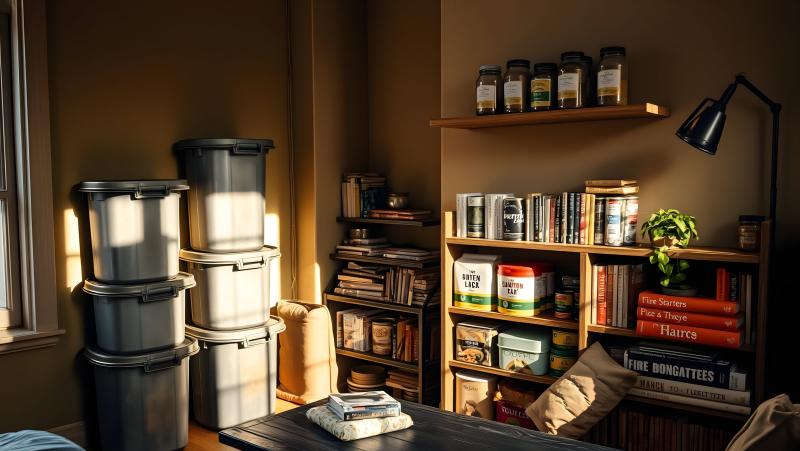Understanding Prepping: Its Importance and How to Get Started
Prepping, a term that has gained significant traction in recent years, refers to the practice of preparing for emergencies. This preparation can range from minor power outages to major natural disasters, or even societal collapse. But what exactly is prepping, and why is it important? This article aims to answer these questions and provide a guide for those interested in starting their prepping journey.
What is Prepping?
Prepping is the process of taking proactive steps today to prepare for potential future events. These events can be as mundane as a power outage or as catastrophic as a natural disaster or societal collapse. The goal of prepping is to be self-sufficient and able to survive without relying on external resources or services.

Prepping is not about paranoia or expecting the worst; it's about being realistic and acknowledging that unexpected events can and do happen. It's about being responsible and ensuring that you and your family are prepared to face any situation that may arise.
Why is Prepping Important?
Prepping is important because it allows you to be prepared for unforeseen circumstances. Natural disasters, economic downturns, pandemics, and other emergencies can happen at any time. Being prepared means you have the resources and skills necessary to survive and thrive during these challenging times.
Prepping also provides peace of mind. Knowing that you have a plan and the resources to handle emergencies can reduce stress and anxiety. It can also foster a sense of self-reliance and confidence in your ability to handle difficult situations.
The Misconceptions About Prepping
Prepping often carries with it a certain stigma, with preppers sometimes being labeled as paranoid, alarmist, or even crazy. However, this couldn't be further from the truth. Prepping is not about fear or paranoia, but about practicality and preparedness. It's about understanding that we live in an unpredictable world and taking steps to ensure that we can handle whatever comes our way.
Prepping is not about preparing for a specific event or disaster, but rather about being ready for a range of potential scenarios. It's not about building a bunker and waiting for the end of the world, but about having the skills and resources to adapt and thrive in a variety of situations.
How to Start Prepping
Starting your prepping journey doesn't have to be overwhelming or expensive. Here are some steps to help you get started:
Identify Potential Risks: The first step in prepping is to identify the potential risks you might face. These could be natural disasters common to your area, personal health issues, or broader societal issues like economic instability.
Create a Plan: Once you've identified potential risks, create a plan to address them. This could include evacuation plans, communication plans, or plans for sheltering in place.
Build an Emergency Kit: An emergency kit is a collection of items you might need in an emergency. This could include food, water, medical supplies, and other essentials.
Learn Essential Skills: Prepping isn't just about having supplies; it's also about having the skills to use them. Consider learning skills like first aid, gardening, or basic home repair. Put a basic tool kit together including the basics such as a saw, knife, axe, etc. Take a look at our prepping tools category for ideas.
Practice Self-Reliance: The ultimate goal of prepping is to be self-reliant. This means being able to provide for your own needs without relying on external resources. This could involve growing your own food, collecting rainwater, or generating your own electricity.
Remember, prepping is a journey, not a destination. It's about making gradual changes and improvements to increase your preparedness over time. Start small, learn as you go, and remember that every step you take towards preparedness is a step in the right direction.
The Levels of Prepping
Prepping can be broken down into three broad categories: survival, stockpiling, and self-reliance.
Survival: This is the most basic level of prepping, where you learn essential survival skills such as navigation, finding food and water, building shelter, and first aid.
Stockpiling: This level involves gathering and storing necessary resources for survival, such as food, water, medical supplies, and other essentials. The goal is to have a supply of these items that can sustain you and your family for a certain period of time.
Self-reliance: This is the highest level of prepping, where the goal is to be completely self-sufficient. This involves learning skills that allow you to replenish your supplies, such as gardening, hunting, and water collection. It also involves learning how to generate your own power and other resources.
The Cost of Prepping
One common misconception about prepping is that it's expensive. While it's true that building up a stockpile of supplies and learning new skills can require some investment, prepping doesn't have to break the bank. There are many cost-effective ways to prepare, such as buying in bulk, growing your own food, and learning DIY skills.
Moreover, the cost of not being prepared can be much higher. In the event of a disaster or emergency, the cost of food, water, and other essentials can skyrocket. By being prepared, you can avoid these inflated costs and ensure that you have everything you need.
The Value of Prepping
Ultimately, the value of prepping is not just in the supplies you gather or the skills you learn, but in the peace of mind that comes with knowing you're prepared. It's about knowing that you've done everything you can to protect yourself and your loved ones. It's about being able to face the future with confidence, knowing that you're ready for whatever comes your way.
In conclusion, prepping is a practical and valuable practice that can provide security and peace of mind in an uncertain world. Whether you're just starting out or you're a seasoned prepper, there's always more to learn and ways to improve. So keep prepping, keep learning, and keep moving forward.
Conclusion
Prepping is an essential practice that can provide security and peace of mind in an uncertain world. By understanding what prepping is, recognizing its importance, and taking steps to start your own prepping journey, you can ensure that you and your family are prepared for whatever the future may hold.


